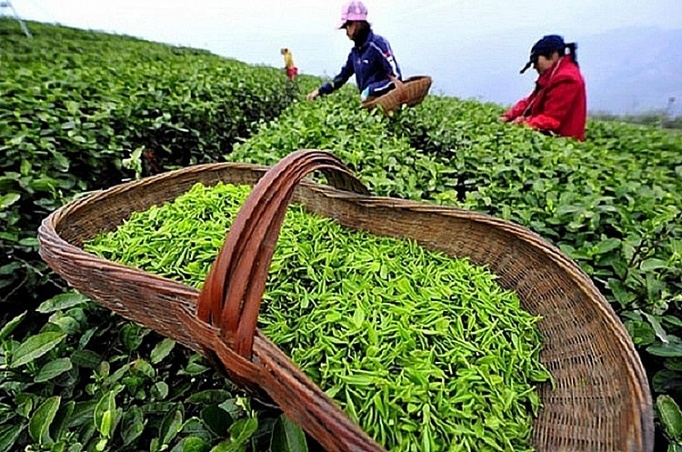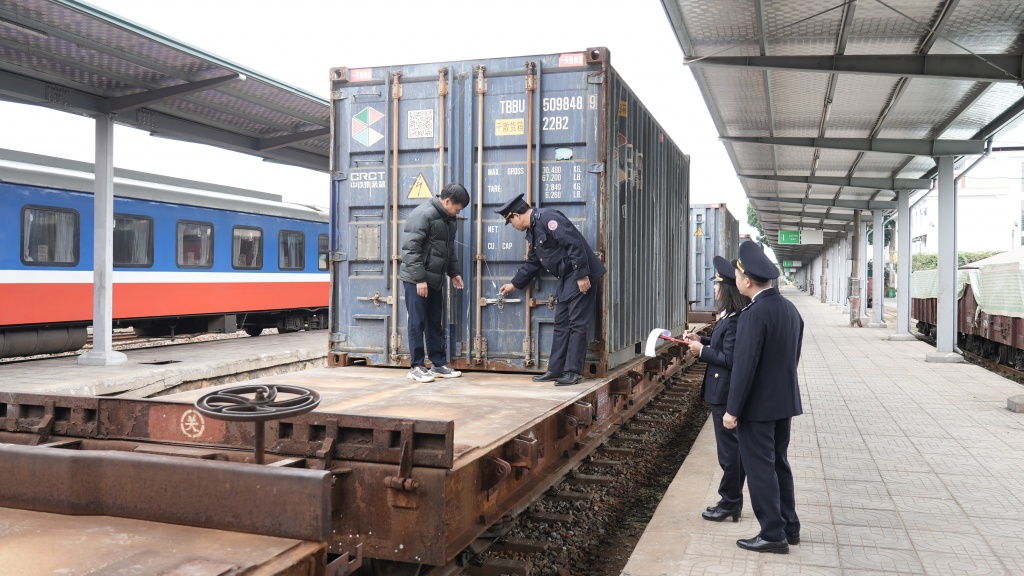Agricultural exports to China grow strongly thanks to the Protocols
On June 6, 2024, in Hanoi, Deputy Minister of Agriculture and Rural Development Hoang Trung had a meeting with Mr. Trieu Tang Lien, Deputy Director General of the General Administration of Customs of the People’s Republic of China, on promoting agricultural products between the two countries through Protocols.
On this occasion, Deputy Minister Hoang Trung and Deputy Director General Trieu Tang Lien signed the Protocol on quarantine requirements for monkeys exported from Vietnam to China; at the same time, representatives of the two sides also initialed the conclusion of negotiations on the Protocol on plant quarantine for fresh coconut exports from Vietnam to China.
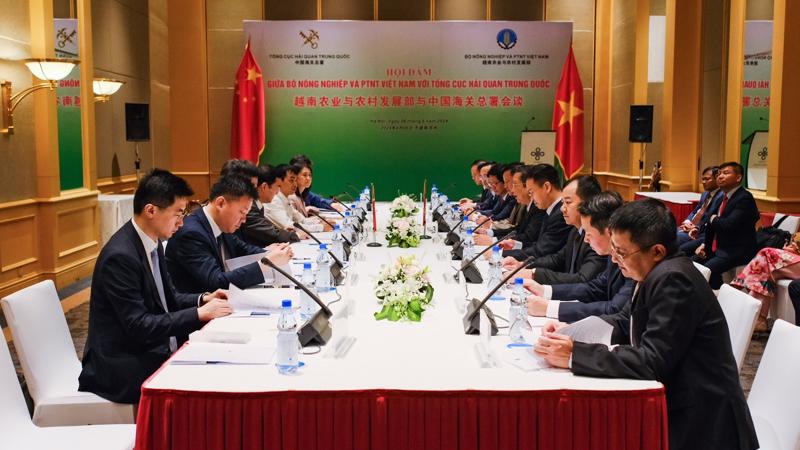
THE MARKET SHARE OF VIETNAMESE AGRICULTURAL PRODUCTS IN CHINA IS STILL MODEST
At the meeting, Deputy Minister Hoang Trung said that over the years, the cooperative relationship between the Ministry of Agriculture and Rural Development and the General Administration of Customs of China has been continuously strengthened and put into practice. In particular, during the complicated developments of the Covid-19 pandemic, the two sides have closely coordinated and flexibly handled the situation to ensure that trade in agricultural, forestry and fishery products between the two countries is not interrupted.
“The Ministry of Agriculture and Rural Development of Vietnam and the General Administration of Customs of China have flexibly applied online assessment measures and signed indirect protocols to open the market for black jelly products, bird’s nests, durian, dragon fruit, etc. exported from Vietnam to China,” Deputy Minister Hoang Trung shared.
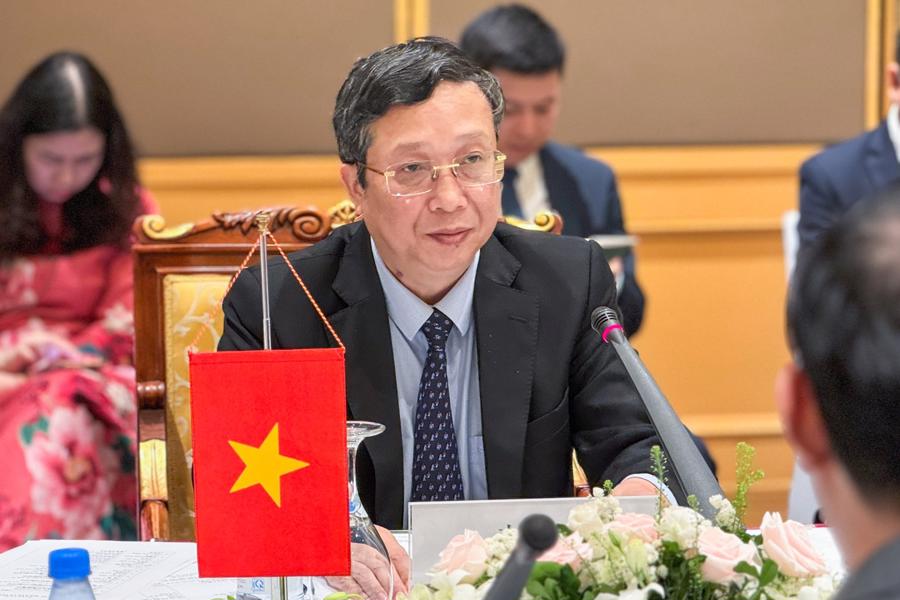
Thanks to that, in 2023, the trade turnover of agricultural, forestry and fishery products between Vietnam and China will reach 15.53 billion USD. Of which, Vietnam’s exports will reach 12.1 billion USD, up 16.4%, and imports will reach 3.4 billion USD, down 9.7% compared to 2022.
In the first 5 months of 2024, the import-export turnover of agricultural, forestry and fishery products between the two countries will reach 6.2 billion USD, up 2.9% over the same period in 2023. Of which, Vietnam’s exports to the Chinese market are estimated at 4.6 billion USD, up 8.6%, and imports are estimated at 1.6 billion USD, up 31.5% over the same period in 2023.
According to Deputy Minister Hoang Trung, with a population of more than 1.4 billion people and a growing middle class, China is a large market for many types of high-quality agricultural, forestry and fishery products. However, the market share of Vietnamese agricultural products here is still relatively small, accounting for less than 5% of the total import value of this group of products in China. This is also an opportunity for Vietnamese enterprises to increase the market share of high-quality Vietnamese agricultural, forestry and fishery products in the Chinese market.
Mr. Huynh Tan Dat, Director of the Plant Protection Department (Ministry of Agriculture and Rural Development), said that over the past 2 years, in an effort to promote opening the market for fresh coconuts, the Plant Protection Department has discussed in depth with Chinese specialized agencies on technical issues related to pest management, measures to manage the quality and safety of the fruit, as well as product packaging. To date, the two sides have reached a technical agreement and signed the Protocol.
“Promoting the signing of the Protocol on fresh coconuts is one of the innovations that China has created for Vietnam. This proves that the two sides have reached consensus. On that basis, in the process of implementing trade and export techniques, we will continue to improve legal issues to sign at the level of trade decrees in the coming time”, said the Director.
MORE PROTOCOLS WILL BE SIGNING
According to Mr. Huynh Tan Dat, up to now, many agricultural, forestry and fishery products of Vietnam have been officially exported to China. Including 12 fruit and vegetable products (watermelon, mangosteen, black jelly, durian, fresh banana, sweet potato, dragon fruit, rambutan, mango, lychee, longan, jackfruit); bird’s nest, fish meal and some products serving the production and processing of animal feed; dairy products and various types of seafood.
On the side of the General Administration of Customs of the People’s Republic of China, Deputy Director General Zhao Zenglian said that the Chinese side will assign technical agencies to review and promptly process the registration dossiers for exporting agricultural and aquatic products of Vietnamese enterprises to China in order to facilitate trade cooperation in agricultural, forestry and aquatic products.
“China highly agrees on the plan to remove difficulties and obstacles for Chinese sturgeon exported to Vietnam. In the coming time, we will support Vietnam to enhance its capacity to appraise sturgeon species when importing,” said Mr. Zhao Zenglian.
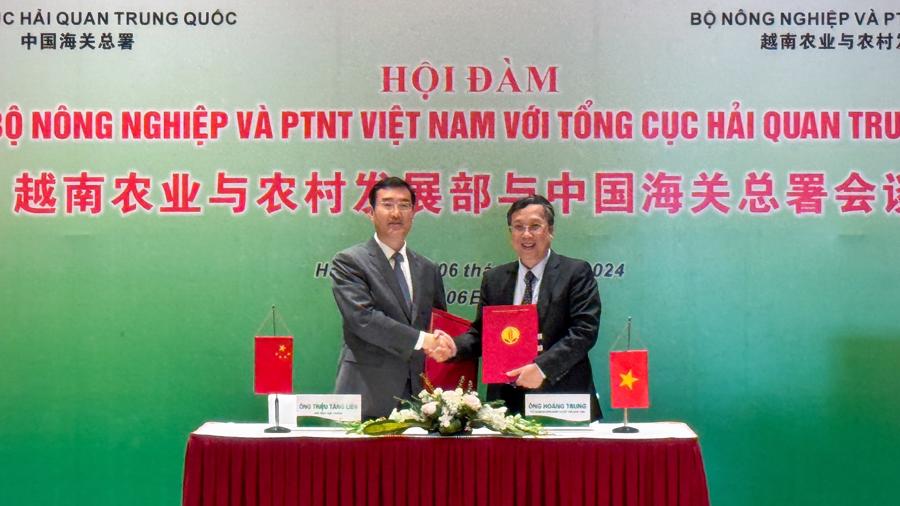
At the meeting, representatives of the two sides agreed to promote cooperation in the field of agricultural trade and market opening in the coming time.
Accordingly, the two sides will soon complete the procedures to sign the Protocols on phytosanitary requirements for fresh coconuts and frozen durians exported from Vietnam to China.
Regarding passion fruit and chili, which have been piloted for export by both sides, the Ministry of Agriculture and Rural Development of Vietnam and the General Administration of Customs of China will promote the completion of procedures to be able to sign these two more documents soon.
At the same time, the two countries will coordinate to complete the signing of the Protocols on the export of crocodiles, raw bird’s nests, poultry and exploited aquatic products from Vietnam to China.
The two sides also agreed on a plan to remove difficulties and obstacles for Chinese sturgeon exported to Vietnam.
Before concluding the talks, Deputy Minister Hoang Trung and Deputy Director General of the General Administration of Customs of China Trieu Tang Lien signed the Protocol on quarantine requirements for monkeys exported from Vietnam to China. At the same time, they witnessed the initialing of the conclusion of negotiations on the Protocol on Plant Quarantine Requirements for Fresh Coconut Exports from Vietnam to China.
Source: vneconomy




